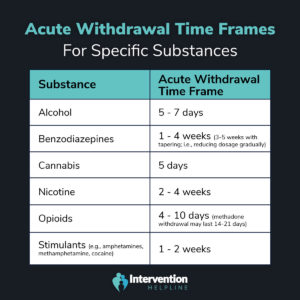Detoxification, or detox, is the process of removing toxins from the body. In the case of drugs and alcohol, this process involves allowing the body to fully metabolize the drugs someone has used over the past months or reads. The body cannot begin recovery while still under the influence of drugs or alcohol. If you are ready to help a loved one who is dependent on drugs or alcohol, an interventionist is a smart first step. They can explain how medical detox can make the transition to a drug-free life easier.
Detox for those who suffer from an addiction can be difficult, as users must undergo the sometimes painful symptoms of withdrawal. Medical detox, however, is one option for a less challenging detoxification. An addiction intervention can help your loved one understand the process of detoxification can be much easier when done medically.
Medically Assisted Detox
Medically assisted detox is a type of treatment supervised by medical and mental health professionals. Detox is a difficult and uncomfortable process. Detox under the care of medical professionals helps the person who wants to recover from addiction get through withdrawal in a safe and comfortable environment. The withdrawal symptoms are painful and potentially life-threatening, depending on the severity.
Trained personnel are available to treat complications of the detox process, administer medication to ease the process, and support the mental health of the patient. During medically assisted detox there is no opportunity for the person struggling with addiction to relapse or give in to the strong drugs cravings that accompany withdrawal symptoms. Medical and mental health specialists will care for the body and mind, as detox put people in a fragile state.
The Stages Of Detox
There are three stages to medically assisted detox. These processes ease the patient through the detox process and help them continue on the road to recovery.
Stage 1: Evaluation
The evaluation stage will gather information to create a strategy that will best suit the needs and goals of the patient. Medical professionals will assess which drugs are present, and the number of substances in the patient’s body, through breath, urine, or blood tests. They will assess the patient’s current state of mental health and any existing medical issues. The medical staff takes this information into account with the patient’s medical and mental health history to develop a detox strategy.
Step 2: Stabilization
Stabilization will take the most time and is the main part of detox. First, the patient is introduced to the detox process. Over the course of stabilization, the patient will receive medical and/or psychological treatment to ease the effects of detox.
Step 3: Awareness Building
Going through the withdrawal symptoms does not been the patient has achieved full recovery, nor does it guarantee sobriety. The final stage of detox will inform the patient of the next steps in treatment and encourage them to continue through the recovery process.
Withdrawal Symptoms And Timeline
Withdrawal symptoms differ depending on the severity and length of relationship with drugs of the person struggling with addiction. Withdrawal symptoms will also depend on age, current mental and physical state, and the amount of drugs in their system currently. Going through medically assisted detox will ease the symptoms and provide medical attention for the more serious cases.
Benzodiazepines

Benzodiazepine withdrawal symptoms include nausea, vomiting, insomnia, tremors, sweating, rapid pulse, anxiety, auditory or visual hallucinations, agitation, or seizures. The most potential life-threatening and terrifying of these symptoms is seizures. Medical staff in a medically assisted detox are prepared to treat and prevent seizures. Older people struggling with benzo addiction have a higher chance of falling and heart attacks during detox.
Opioids
There are many factors that affect the detox timeline for people going through opioid detox. The kind of opioid, dose, frequency, route of administration, duration of use, and whether the opioid was abuse on its own or in addition to other substances are large determining factors. Short lasting opioids will generally present symptoms 6 to 12 hours after the last use and last 5 to 7 days. Long lasting drugs will show symptoms of withdrawal 2-4 days after last use and last up to 3 weeks or more.
Opioid withdrawal symptoms include depression, anxiety, nausea, vomiting, diarrhea, fever, sweating, goose bumps, watery eyes, runny nose, muscle cramps, muscle spasms, dilated pupils, or disturbed sleep patterns. Opioid withdrawal symptoms are rarely life threatening. If the symptoms are left untreated they can develop into relapse or overdose, dehydration, aspiration, extreme pain sensitivity, cardiac arrest, depression, or anxiety. Medical staff in a medically assisted detox program will know the signs of these issues and treat any patients in need of intensive care.
Alcohol
Like opioid withdrawal, there are several variables that will affect the timeline of alcohol detox. Age, previous medical issues, previous complicated withdrawal experiences, family history of alcohol withdrawal, and consumption of sedatives or anti-anxiety medications will determine the length and severity of withdrawal symptoms. Withdrawal symptoms will typically occur 4 to 12 hours after the last drink. The body metabolizes alcohol quickly and the withdrawal symptoms typically abate by the fifth day.
Alcohol withdrawal symptoms include insomnia, intense nightmares, nausea, vomiting, loss of appetite, tremors, sweating, rapid heart rate, fever, anxiety, irritability, agitation, seizures, confusion, disorientation, impaired memory and judgement, increased sensitivity to light and sound, hallucinations, or delusions. Withdrawal symptoms from alcohol may cause major health issues due to the stress put on the body. High blood pressure and a stressed heart cause cardiac complications. Hallucinations and delusions cause accidents. Vomiting causes dehydration and electrolyte imbalance. Medical supervision will treat and manage these health issues.
Medications Used In Detox
The withdrawal process is painful and uncomfortable, but drug and alcohol detox programs can make the transition easier. A person going through detox is more likely to have improved outcomes and increased periods of recovery if their discomfort is controlled during this process. As a result, there are a number of medications administered by medical staff to patients going through alcohol, opioid, or sedative detox in a medically assisted detox.
Benzodiazepines
Benzodiazepine detox options can be beneficial during the difficult stages of alcohol withdrawal. The medication prevents seizures and increases the patient’s comfort.
Methadone
Though methadone is an opioid, it is administered to ease the symptoms of opioid withdrawal. Methadone provides mild, longer lasting opioid effects without the euphoric highs are detrimental lows that come with the use of drugs like heroin.
Clonidine
Clonidine is administered to lower high blood pressure and relieve some of the effects of opioid withdrawal. It does not produce a high or any feelings of intoxication during opioid withdrawal.
The Steps After Detox
The completion of detox is not the same as recovery. Following the completion of medically assisted detox, the professional will recommend a variety of rehabilitation centers, support groups, and other steps to take towards full recovery. The phase of treatment following detox usually includes two parts; counseling and education. With counseling, the person struggling with substance abuse will explore the reasons behind the addiction. Education teaches tools to promote good mental health and prevent relapse.
The Dangers Of Detoxing Alone
Detoxing without the supervision of medical professionals puts the person struggling with addiction at risk. The high cravings for drugs, pain, and discomfort can easily send someone into relapse or overdose. Without the care of medical and mental health professionals, detox will exacerbate the current health and psychological problems of the individual. More extreme symptoms of withdrawal may arise, such as depression, pain, intense drug cravings, seizures, and coma. It is safer to go through medically assisted detox.
Addiction Resources For Parents And Loved Ones
If your loved one is concerned about withdrawals and it’s keeping him or her from beginning a detoxification program, an interventionist may be the answer. Interventionists can explain the challenges of detoxing and how medical assistance can make the process less challenging.
Holding a family addiction intervention before a loved one starts treatment will increase their chance of recovery. An intervention allows the family to understand what their loved one is currently going through and will go through during detox. It helps to establish goals, which are important to have before undergoing detox. It will also ensure that the needs of the person struggling with addiction are met during treatment, such as a safe detox and the treatment of other conditions during the detox treatment. Intervention specialists can help a family take the first steps towards recovery together.









 All Rights Reserved |
All Rights Reserved |